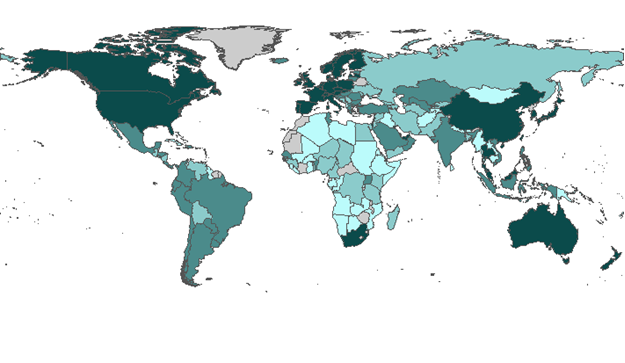News For January 18, 2010
2011-01-18 16:13:43
The Logistics Perfomance Index (LPI), powered by the World Bank, is an interactive benchmarking tool created to help countries to identify the challenges and opportunities they face in their performance on trade logistics as well as what they can do to improve their performance. In the LPI 2010, Ukraine occupies only a very weak, 102nd position among 155 countries.

UNIAN news agency reported annual results for Ukraine’s government owned and financed agricultural equipment leasing organization – Ukragroleasing. This company is considered by some in the bank and finance sectors one reason why Ukraine has an inadequate regulatory framework for financial leasing. The company provided 1033 farm equipment units of Ukrainian manufacture valued at 352 million UAH, and that twice as much as in 2009 when it supplied equipment valued at 185 million UAH
|
|
UNITS |
COST |
AVG in UAH |
AVG in $ |
|
|
|
|
|
|
|
Tractors |
313 |
67 500 000 |
215 655 |
$26 957 |
|
Combines |
28 |
29 200 000 |
1 042 857 |
$130 357 |
|
Cultivation equipment |
245 |
25 000 000 |
102 041 |
$12 755 |
|
Livestock and Poultry equipment |
119 |
172 000 000 |
1 445 378 |
$180 672 |
|
Other |
328 |
58 300 000 |
177 744 |
$22 218 |
|
TOTAL |
1033 |
352 000 000 |
340 755 |
$42 594 |
SYDNOSERVIS a small agricultural producer in Kherson Oblast has completed construction of a large, 90 thousand ton grain and oilseed storage and drying elevator complex. The company farms 4,000 hectares and it intends to become a local grain and oilseed trading company. The investment in storage and handling may and wind up being a burden because as we reported yesterday the new tax code government support of state owned Zerno Ukrainy have created very financially unfavorable conditions small Ukrainian traders.
UKRAINIAN STATE STATISTICS COMMITTEE reported final agricultural production results for 2010. According to the government agency overall agricultural output in 2010 fell by 0.1% in comparison to 2009. This insignificant decline occurred even after Ukrainian producers’ lost significant production due to winter kill of rapeseed, wheat and barley in central and eastern Ukraine, as well southern, eastern and central Ukraine went through a prolonged drought. The committee also reported that Ukraine’s cow herd shrunk by 1.8% in 2010 in comparison to 2009 and sheep and goat numbers fell by 0.9%. Ukraine’s poultry flock increased by 2.2% in 2010 and hogs by 6.1%. We expect that in 2011 Ukraine will record the first increase in cattle numbers since independence and that poultry and hog numbers will also increase. The driver for increased cattle numbers is investments coming from Milkiland, Pespsi, Danone, Ukrainian agro holdings and we expect mid and small sized farms will also be increasing milk production. The driver for all animal production is the opportunity for market substitution, and growing appetite for meat products in Russia and the Middle East.
According to Finance and Bank Committee of the Verkhovna Rada, Ukraine’s parliament, the expectation is that commercial banks, who currently offer up to 18% on deposits in Hryvnia, may attract 40 billion in deposits during 2011. Currently commercial banks have approximately 100 billion held on deposits for clients. Deputy Chairman of the Committee, Mr. Stanislav Arzhentiev, believes that banks will be looking for borrowers of this money, mostly among small and mid sized businesses. We believe that lending to Ukrainian agricultural producers may increase by 100% this year to 18 billion hryvnia from 9 billion last year. This will not occur if the government keeps manipulating exports, in which case farmers will probably sow less and need less operating credit.